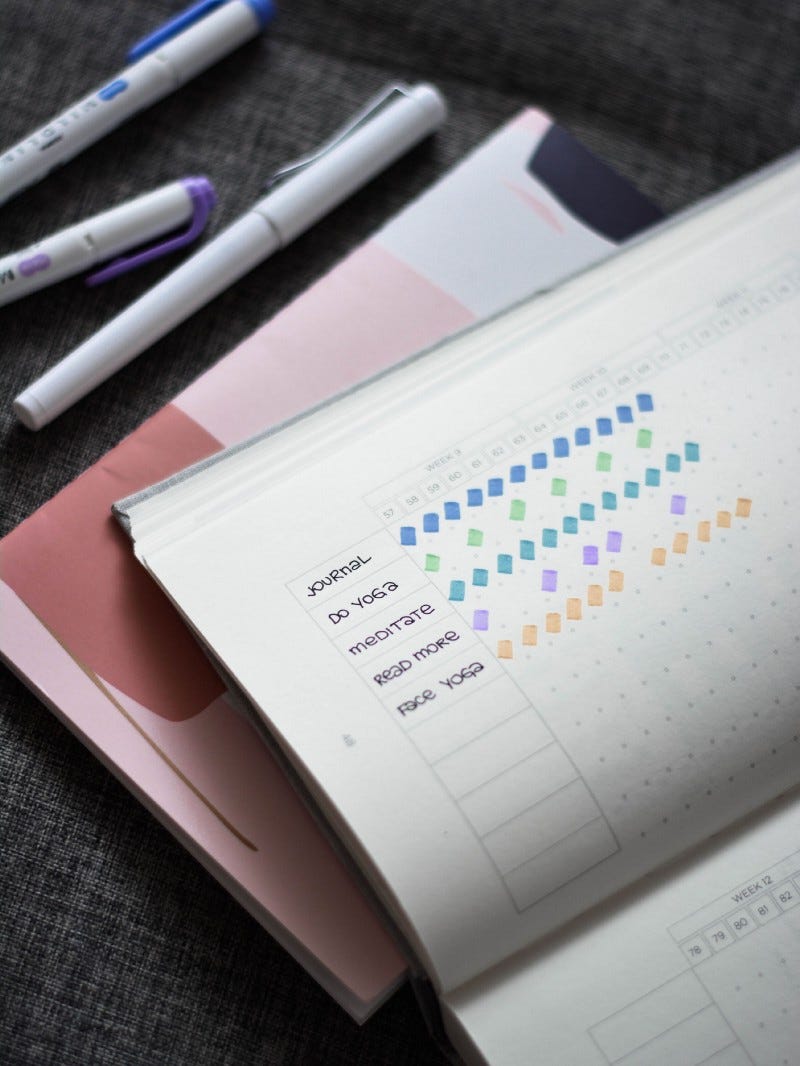THIS Year, Set GOALS and HABITS, not Resolutions
Happy New Year! Wait! It’s now the middle of February! How are those resolutions you set at the beginning of January going? That was when…
Happy New Year! Wait! It’s now the middle of February! How are those resolutions you set at the beginning of January going?
That was when many people decided to make one or more changes in their lives and decided to set New Year’s resolutions.
That’s why the gyms were full in January, and why you saw lots of weight loss companies advertising on TV. Some of the commonly stated resolutions include:
I want to lose weight.
I want to make more money.
I want to quit smoking.
I want to spend more time with my family.
I want to change my career.
But now that we’re more than seven weeks into the New Year, many, if not most, of the resolutions people made have fallen by the wayside.
Yes, I used to make resolutions
Do any of these sound familiar to you? They certainly sound familiar to me. I’ve made resolutions for just about everything in the above list — more than once.
But we know what usually happens to resolutions made on New Year’s Eve: they rarely last.
I’ve lost about twenty pounds in the last year, but I gained five pounds over the holidays.
I grew my businesses and I did make a lot more money last year, but now I’m overworked and have much less time for a lot of other things in my life, including my family.
I did change my career almost twelve years ago, but now I have to learn how to scale back my workload.
I put my workouts on my schedule, but I still miss more workouts than I do.
Did you make one or more resolutions last year? If so, how many did you keep and how many fell by the wayside by February?
So if you’re in the habit of making resolutions, should you switch to setting goals instead? What is the difference between resolutions and goals?
The Difference Between Resolutions and Goals
A resolution is a general statement of what you want to change.
A goal, on the other hand, is a very specific statement of what you want to achieve by a certain date. Have you heard the phrase: “A goal without a date is just a wish?”

Think about what is probably the #1 resolution: to lose weight. That is a pretty vague statement. Now, think about being more specific and turning that resolution into a goal: how much weight do you want to lose? By what date do you want to reach that goal? And most importantly, WHY do you want to lose weight? Most people want to lose weight to better fit into their clothes, improve their overall health, or to be a certain “size” by a certain date.
With an actual specific goal rather than a vague resolution, you can now add the action items you need to help you to achieve your goal. Losing weight is a combination of eating less, eating better, and moving more.
With a goal, you can give yourself a step-by-step roadmap to reach your target. Working towards your goal with small, achievable steps also helps you to stay motivated: you can lose fifty pounds five pounds at a time and still feel like you are making progress.
How to use habits to reach your goals

Another successful way to replace “resolutions” is to concentrate on developing habits instead. A habit is a repetitive action that eventually is done almost automatically.
Habits are a powerful way to influence our behavior by putting positive tasks and activities on “automatic.” Author Octavia Butler stated: “Habit is persistence in practice.”
You can actually achieve many of your goals by breaking each goal down into small, achievable habits.
For example, when deciding to institute a regular morning routine, you will find that your routine is actually a set of habits that you repeat every morning: making your bed, completing your workout or meditation, brushing your teeth, taking a shower, getting dressed, doing your hair and makeup, eating breakfast, and THEN starting your day.
As you work to finish your morning routine every day, each of those tasks becomes a habit that you repeat until it is automatic, and before you know it, you’ve completed your morning routine without having to think hard about it!
On a personal level, I had a “goal or habit aha! moment” when I was recently in tree pose in my 6 am yoga class. My goal was to complete 100 classes in four months, but I realized that if I made it a habit to practice 5X/week, I would make my 100-practice goal in five (not four) months anyway! I felt such a wave of relief — making something a habit would naturally help me to meet my goal almost effortlessly.
Another benefit of developing and implementing habits to help you meet your goals is that habits continue even after your goal has been achieved. Once the task has been turned into an automatic habit, you can and will continue to make the improvement in your life that you desired in the first place.
Goals and habits are made even more relevant and more achievable when you attach a reason — a “why” — to your goal. A “why” is the emotional trigger that adds strong enough positive or negative enforcement to your goal or habit.
Adding a “why” to something as relatively simple as making your bed every day is how it makes you feel: organized! Adding positive “whys” is relatively easy, but you can also add negative “whys;” those pain points are very effective motivators.
What you can do now: today!
So now what do you do about those New Year’s Resolutions? If you have already made resolutions for this year, this is a good time to revisit them and convert them to goals and habits. If you have not made resolutions yet, this is the perfect time to start setting goals and developing ongoing habits. I am quite sure that you will see an immediate improvement in your overall quality of life.
To keep in touch which what I do in my personal and business lives that add to my quality of life, follow me on Instagram. I would love to see you there!




